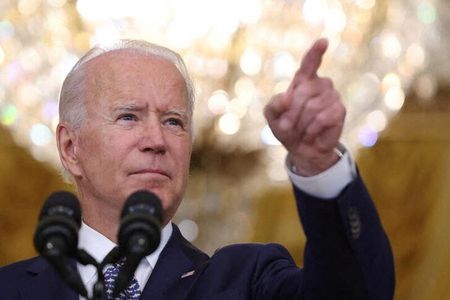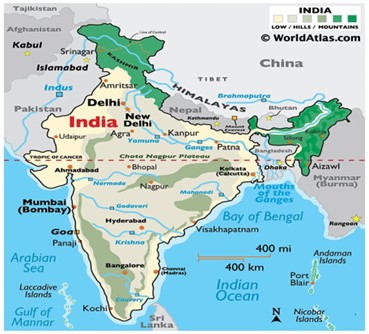
The Ukrainian Conundrum – Who Wants War, At Any Cost?

I watch the unfolding drama, not unlikely to reach a tragic end, with considerable consternation and even more sadness. By ‘tragic end’ I do not necessarily mean a big war in Europe that I consider most unlikely. For me continued deterioration in relations with Putin’s Russia and Biden’s America is an end tragic enough. The West led by President Biden has consistently acted to aggravate a tense situation. President Putin, who has legitimate security concerns, has deployed forces in a manner that is not conducive to constructive diplomacy.
I liked the statement of India’s P.R., T.S. Tirumurti, made in the Security Council on 17th February, 2022, (https://www.pminewyork.gov.in/IndiaatUNSC?id=NDUwNA). It is a study in good classical diplomacy, a variety of diplomacy seriously endangered in today’s world, where ‘public diplomacy’ has seen a cancerous growth.
It is worthwhile to attempt a political parsing of Ambassador Tirumurti’s statement.
- “We believe that the “Minsk Agreements”, provide a basis for a negotiated and peaceful settlement of the situation in Eastern Ukraine. Accordingly, we urge all parties to continue to engage through all possible diplomatic channels and keep working towards the full implementation of the “Minsk Agreements”. The meaning is clear. Without implementing these agreements no progress can be made. The implication is that the West, led by Biden, by repeating ad nauseum that Putin would be punished, is not helping to find a solution.
- “Any steps that increase tension may best be avoided by all sides in the larger interest of securing international peace and security. Quiet and constructive diplomacy is the need of the hour.” India is urging the NATO to stop and reverse the military activities, including the redeployment of forces; U.S., U.K., and others are urged to stop the arming of Ukraine. Simultaneously, India is urging Russia to cease and reverse its deployment of forces that has caused fear in Ukraine.
I have been shocked, but not surprised, by the allergy of Western governments and pundits to take into account the past as we try to understand the present. They seem to be bent on ignoring the dictum of Thomas Carlyle: “The Present is the living sum-total of the whole Past.”
A timeline might help to drive home the point.
1648
Revolt against Polish rule starts in the Crimea.
1654
The Cossacks in the Crimea choose to recognize the suzerainty of the Russian tsar and to incorporate their community into the Muscovite state (Union of Pereyaslav).
1783
The Russian Navy starts building a base in Sebastopol in the Crimea as it needs a warm water port.
The Treaty of Paris brings to a close the American War of Independence with England recognizing the United States of America.
1954
On the 300th anniversary of the incorporation of the Crimea to Russia, Nikita Khrushchev, who had spent years in Ukraine, gets the approval of the Supreme Soviet to transfer the Crimea from the Russian Federation to Ukraine. (In the eyes of the Supreme Soviet the U.S.S.R. was sempiternal and it did not make any difference whether the base of the Black Sea Fleet was with Ukraine or Russia.)
1997
After the dissolution of the Soviet Union, Ukraine and Russia in dispute over the ownership of the Black Sea Fleet, sign a treaty giving the Russian Navy access to Sebastopol till 2017.
2010
The newly appointed President Viktor Yanukovych signs a deal extending the lease to 2042, against an undertaking by Russia to supply gas at a discount.
2014
As Yanukovych refuses to approve a motion by the Parliament to seek an associate status with EU, demonstrations against him, openly encouraged by Washington, lead to his fleeing to Russia fearing for his life.
Putin fears that his Navy might be expelled from Sevastopol and it might become a NATO base endangering Russia’s national security. Putin arranges for secession and the legislature in Crimea, after a referendum on secession and joining Russia, seeks annexation by Russia.
The West imposes economic sanctions on Russia, with no visible impact on Russia’s behavior.
In short, those who attribute the annexation of the Crimea entirely to Putin’s aggressiveness miss the point. They do not raise the question: Why was he so aggressive?
Coming to the present, it is rather amusing to see Washington repeating ad nauseum since 19th January 2022 that Russia was going to invade Ukraine in the next few days. Ukraine’s President protested as he recognized the impact of such American ‘predictions’ on the economy and the morale of the population as foreign airlines and investors started leaving the country. However, his protests have had no impact on Biden and U.K.’s Prime Minister Boris Johnson. Mired as he is in a ‘party-gate’, he might have an interest in exaggerating the crisis over Ukraine.
What might be the possible scenarios?
- A war starts either because Putin wants it or because of provocation from the Ukrainian side. This is the least likely scenario.
- A political resolution based on the ‘Minsk agreements’ of 2014/2015, giving autonomy to the areas in eastern Ukraine adjacent to Russia (Donetsk and Luhansk), slowing down or even reversing Ukraine’s move towards EU/NATO. This is not unlikely.
- A continuation of the imbroglio raising tension between Washington and Moscow, with the latter tightening its embrace of Beijing, leading eventually to an axis of powers opposed to U.S./E.U. consisting of Russia, China, and Iran, if the nuclear deal is not revived. China is likely to draw Pakistan. By depriving Afghanistan of $3.5 billion, Biden has increased the chance of Taliban-led Afghanistan moving closer to China and Pakistan. The reader might conclude that the emergence of such an axis will not be desirable. Such an axis will not be good for India, nor for U.S. and the West.
We have to recognize that Russia’s invasion will certainly benefit Biden facing rising domestic disapproval ratings. Is that the reason he is constantly predicting an invasion hoping to make it a self-fulfilling prophesy? On the other hand, Putin will be disinclined to oblige Biden by invading Ukraine.
Let us hope that India’s appeal to both sides to resort to constructive diplomacy is listened to and acted upon without further delay.
******************
Disclaimer
The opinions expressed in this article are the author’s own and do not reflect the views of Chanakya Forum. All information provided in this article including timeliness, completeness, accuracy, suitability or validity of information referenced therein, is the sole responsibility of the author. www.chanakyaforum.com does not assume any responsibility for the same.
Chanakya Forum is now on . Click here to join our channel (@ChanakyaForum) and stay updated with the latest headlines and articles.
Important
We work round the clock to bring you the finest articles and updates from around the world. There is a team that works tirelessly to ensure that you have a seamless reading experience. But all this costs money. Please support us so that we keep doing what we do best. Happy Reading
Support Us





















POST COMMENTS (1)
mukesh.naik